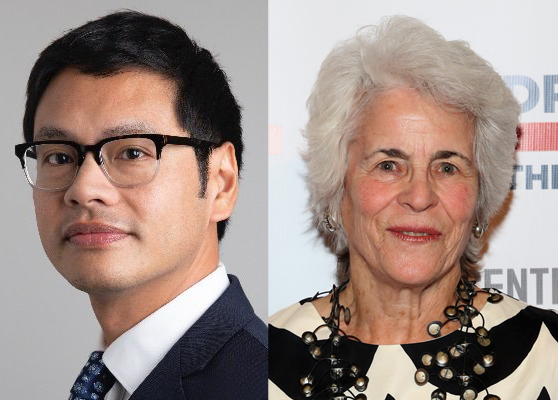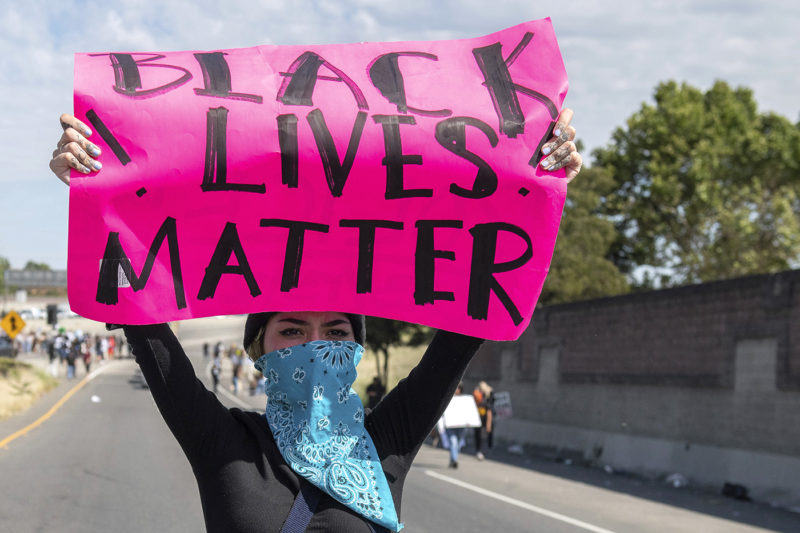There are a few schools of thought concerning how easy or difficult casting a ballot will be on Election Day in the United States. The Northeastern University School of Law will take a closer look at some of them with a panel of experts who will offer insights into gerrymandering, shuttered polling locations, and other impediments that some voters may face in eight weeks.
“The Battle for Voting Rights in 2020” is the focus of the virtual conference on Sept. 18. The topic is in keeping with the law school’s social justice, public interest mission, says conference organizer and former Massachusetts trial court judge Nonnie Burnes.

Dale Ho, left, is the director of the Voting Rights Project of the American Civil Liberties Union. Nonnie Burnes is a former Massachusetts trial court judge, and organizer of the “The Battle for Voting Rights in 2020” conference. Courtesy photos
“There are so many people today who are focused on social justice issues. Voting is one of them,” says Burnes, who was a Northeastern trustee from 2002 to 2018. “But there are a lot of people who think about it in very nuanced ways, so the conference is a great place to have this conversation.”
The dialogue will start with exploring impediments to voting and then move to strategizing solutions, says Mielle Marquis, director of external relations for the law school.
“We’re hoping the conference will lead to ideas and actionable strategies for substantive change to ensure that all people who are entitled to vote have access and the opportunity to carry out this fundamental right,” she said.
Livestream viewers are encouraged to tweet their opinions to #VotingRightsBattle.
Adding to the urgency of the issue is the looming presence of the coronavirus.
It is hard to imagine an election season as full of disruptions as this one. Large indoor rallies were canceled. No more red, white, and blue balloon drops and confetti at the parties’ nominating conventions.
And, two universities withdrew from the prestige of hosting the general election debates between President Donald J. Trump and Joe Biden–an event that typically draws tens of millions of viewers–citing the risk of the pandemic.
Not since the 1918 flu pandemic have the norms and traditions of an American campaign been so uprooted by a worldwide illness.
“In the recent primaries there were multi-hour-long waits in places like Atlanta and Las Vegas,” said Dale Ho, director of the Voting Rights Project of the American Civil Liberties Union, who will deliver the keynote at the voting rights conference. “In the Wisconsin primary, polling locations in Milwaukee went from 180 to five. People are reluctant to gather in crowds right now.”
Not all states reported glaring issues with their primaries.
Last week’s Massachusetts contests ran largely without incident and turnout set a record with almost 1.7 million votes cast. It was also the first primary with early voting and vote-by-mail options for the majority of the public. A mail-in voting law was implemented in July, in response to the pandemic..
Ho is one of the leading legal figures on the issue of voting rights. He is noted for having persuaded the nine justices of the U.S. Supreme Court to strike down the Trump administration’s quest to include a citizenship question on the Census.
He advocates for mail-in voting as one measure to reduce the risk of catching SARS CoV-2, the coronavirus that causes COVID-19.
Ho is not alone in that thinking.
Majorities of U.S. residents supported making mail-in voting easier, according to a survey conducted by researchers from Northeastern, Harvard, Rutgers, and Northwestern.
Every state in America already offers absentee voting for residents unable to go to their assigned polling places on Election Day. Colorado, Hawaii, Oregon, Washington, and Utah conduct elections entirely by mail, and an additional 16 states allow certain local elections to be held by mail, the survey added.
Beyond COVID-19 and mail-in ballots are more long-standing issues that the Northeastern panel will address in the half-day conference, including malfunctioning machines, suppression tactics like identification and registration requirements, and electoral districting known as gerrymandering.
Addressing these topics will be the work of a panel of election experts, including North Carolina Associate Justice Anita Earls and the Brennan Center for Justice senior counsel Michael Li.
The conference, which is part of a new annual series, will celebrate and raise funds for the law school’s Public Interest Law Scholars Program, which provides scholarships for incoming law students with a deep commitment to social justice. Each year the conference will focus on a pressing public interest issue.
For Burnes, the former judge who organized the law school’s conference, the stakes couldn’t be clearer.
“I had juries in my courtroom and I told them that this was the second place that they could exercise their civic duty. But the first place was to vote.”
For media inquiries, please contact media@northeastern.edu.
"day" - Google News
September 12, 2020 at 02:47AM
https://ift.tt/3k8sy7Z
Election Day is in 8 weeks. Will every ballot be counted? - News@Northeastern
"day" - Google News
https://ift.tt/3f7h3fo
https://ift.tt/2VYSiKW
Bagikan Berita Ini
















0 Response to "Election Day is in 8 weeks. Will every ballot be counted? - News@Northeastern"
Post a Comment